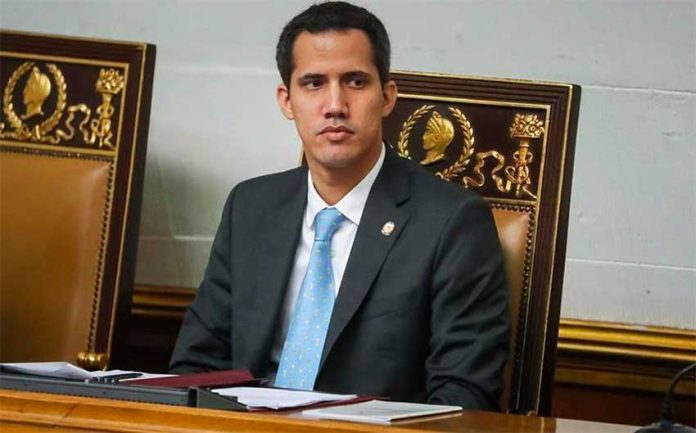Mexico will continue to recognize Nicolás Maduro as the legitimate president of Venezuela in contrast with the United States and several other countries in the region.
Juan Guaidó, the 35-year-old leader of Venezuela’s opposition-controlled National Assembly, yesterday swore himself in as the new interim president.
“Today, January 23, 2019, I swear to formally assume the powers of the national executive as president in charge of Venezuela,” Guaidó declared in front of thousands of jubilant supporters in Caracas.
United States President Donald Trump promptly issued a statement declaring that he was “officially recognizing the president of the Venezuelan National Assembly, Juan Guaidó, as the interim president of Venezuela.”
Trump said that “the people of Venezuela have courageously spoken out against Maduro and his regime and demanded freedom and the rule of law,” adding, “I will continue to use the full weight of United States economic and diplomatic power to press for the restoration of Venezuelan democracy.”
Canada and most South American countries, including Brazil, Argentina, Colombia and Chile, followed suit in recognizing Guaidó.
But Mexico’s government declined to throw its support behind the self-proclaimed president, reiterating that its position towards Venezuela is one of non-intervention.
“In accordance with our constitutional principles of non-intervention [and] self-determination . . . Mexico will not participate in the non-recognition of the government of a country with which it maintains diplomatic relations,” the Secretariat of Foreign Affairs (SRE) said in a statement.
“We fully agree with the call of the United Nations for all actors involved in the conflict in Venezuela to reduce tensions, make their best efforts to avoid an escalation and to reject any type of political violence,” the statement continued.
Government spokesman Jesús Ramírez Cuevas also said that “the Mexican government maintains its position of non-intervention” and would maintain relations with the “legitimately elected” government. “Our call is for dialogue,” he added.
The government’s refusal to join the chorus of condemnation against Maduro triggered criticism from former political heavyweights Vicente Fox, president between 2000 and 2006, and Jorge Castañeda, foreign affairs secretary from 2000 to 2003.
“Today we see the light at the end of the tunnel, we have an interim president in Venezuela that has the support of several countries, beginning with the United States,” Fox told Milenio Televisión.
“As hard as I am on Trump, in this case he’s right in what he’s doing, I congratulate him for having done it. Who’s very wrong is López Obrador. Without representing Mexicans, without democratic convictions . . . he’s been protecting Maduro,” the former president said.
“Mexico must declare itself in line with [the position of] all democrats, all libertarians of the world,” Fox said.
For his part, Castañeda said that “Mexico’s position is pathetic because it doesn’t take into account that Maduro is [an] illegitimate [president] because he was elected in a completely fraudulent election and his government has killed more than 150 people.”
He added: “The government of Mexico should condemn and repudiate [Maduro] in the same way as right-wing and non-right-wing governments are doing all over the world.”
The president of the opposition National Action Party (PAN), Marko Cortés, said on Twitter that the party supported Venezuelans in their “fight against the usurpation of the dictator Nicolás Maduro.”
Questioned about Mexico’s position today, President López Obrador said that Mexico’s non-intervention didn’t amount to taking sides.
“We don’t want a confrontation or dispute, we want a friendly relationship with all the peoples and governments of the world,” he said.
“It’s not that we are in favor of or against [Maduro], we’re for compliance with the constitutional principles, with absolute, unconditional respect for those principles . . . It may be that groups, people, governments don’t like it but that’s what our constitution establishes,” the president added.
Earlier this month, Mexico was the only country in the regional Lima Group that didn’t add its voice to a declaration urging Maduro not to take office for a second term on January 10.
Maduro defied that entreaty and yesterday remained defiant declaring, “I am the only president of Venezuela, we do not want to return to the 20th century of gringo interventions and coups d’état.”
Millions of Venezuelans have fled the country in recent years amid political repression, human rights abuses, skyrocketing inflation and severe food and medicine shortages.
The federal government’s decision not to speak out against Maduro’s government largely isolates Mexico in the region, where only a few countries such as Cuba and Bolivia expressed support for the leftist leader.
Other countries that backed Maduro included China, Russia and Turkey.
Source: Milenio (sp) Reforma (sp), Reuters (en), El Financiero (sp)
